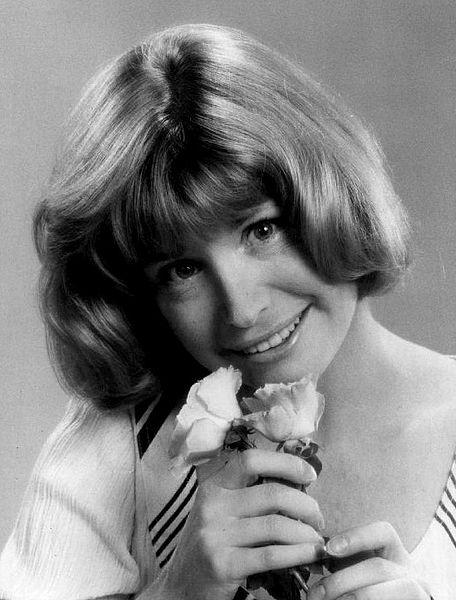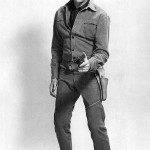TV Legends: Bonnie Franklin, Dale Robertson
By • March 12, 2013 0 6913

In a communications-entertainment world where access to everything all of the time is a given, change is hardly ever noticed, or given any kind of context.
You can probably view “One Day at a Time,” the very successful network television sitcom that starred the delightfully original Bonnie Franklin as a divorced single mom raising two teenaged daughters in the 1970s on YouTube or cable channels airing old sitcoms. You might able to find “Tales of Wells Fargo” and “Iron Horse” and even “Death Valley Days,” three western series from the 1950s and ’60s, starring cowboy star Dale Robertson on Premium Cable Network’s Encore Series specializing in western fare.
Looking at them, you realize that television, like everything else in the world, has changed enormously. In a network and general cable television world of reality shows, old and new shows, those shows appear like relics or spools found in a time capsule from a distant past.
Both Franklin and Robertson died last week: Franklin, at 69 of cancer; Robertson, 92, of complications from pneumonia and lung cancer.
Franklin was a refreshing star in a network entertainment world that was dominated by cop shows—as now—and the realistically upgraded and topical sitcom world of Norman Lear who threw, like a hand grenade, “All in the Family,” onto network television, which featured Archie Bunker, a working-class paterfamilias played with great outrage by Carroll O’Connor, spewing complete politically incorrect comments and attitudes that he wore like a worn, no-sleeve t-shirt, living with his out-of-work semi-hippie son-in-law Michael, whom Archie called “Meathead,” his wife Edith and daughter Gloria. The show begat other sitcoms, “Maude” and “The Jeffersons,” where bigotry, the life of single mothers and single women and all sorts of social issues made their way into the comedy
Franklin, with her brisk red hair and no-nonsense airs, was refreshing, trying to handle her daughters with respect, tart affection and wisdom gained through her own life experiences. With Franklin’s energetic ways, the show seemed to mirror a certain amount of realism, a look at a world experienced by many women (even then the divorce rate hovered around 50 percent) if not most. The show was part of a television world where topicality had invaded a sitcom world once dominated by the more idyllic world of “The Andy Griffith Show,” or, earlier, “Leave it to Beaver” or the abysmal “Beverly Hills Hillbillies.”
These days, there are still sitcoms, we can say thankfully, although many of them have more than their fair share of raunchiness. Still, there’s “Modern Family,” the recently departed Tina Fey show—or was it Alec Baldwin’s?—“30 Rock,” “The Office,” “Parks and Recreation,” “New Girl” and “The Family Guy” along with “The Simpsons,” which spawned a whole new genre of adult cartoon sitcoms with all the free-flying cultish results you might expect. These are shows imbued with work-place, single life or family life content mixed in with an irreverent and often wiggy spirit, one of which—“Two and a Half Men”– gave us Charlie Sheen’s personal post-movie star life in high dudgeon.
Robertson was a star of the type we don’t have any more. There are still occasional westerns from “Open Range” of a few years back, to “Django Unchained” which is a western which began out west and moved into the pre-Civil War South, but had the spirit of a Sergio Leone “Spaghetti Western.” But there are no more western television series, especially of the type which Robertson starred in. During the 1950s and 1960s, television became the landing place du jour for Hollywood personalities who had once been western movie stars or players. Robertson himself, who wanted nothing more in life than to be able to own a ranch and raise horses, insisted he was not an actor. Usually, they were Hollywood western players —such as Hugh O’Brian (“Wyatt Earp”), Richard Boone “Wanted Dead or Alvie,”, or James Arness’s “Gunsmoke” or even the debonair, urbane Gene Barry (“Bat Masterson”)—whose career never quite reached the level of stardom or had petered out.
Robertson acquitted himself well in his three series and earned more than enough money to buy a ranch and took over the show, “Death Valley Days,” which Ronald Reagan once hosted. Reagan, as a future president, had another career awaiting him.
Robertson’s death sparks memories of his films—“The Silver Whip”—and series, enjoyed by people living in a very different America, where the phrase “gun control” might simply mean a description of the way a gunslinger twirled his gun.
- Bonnie Franklin, January 6, 1944-March 1, 2013 | CBS Television



